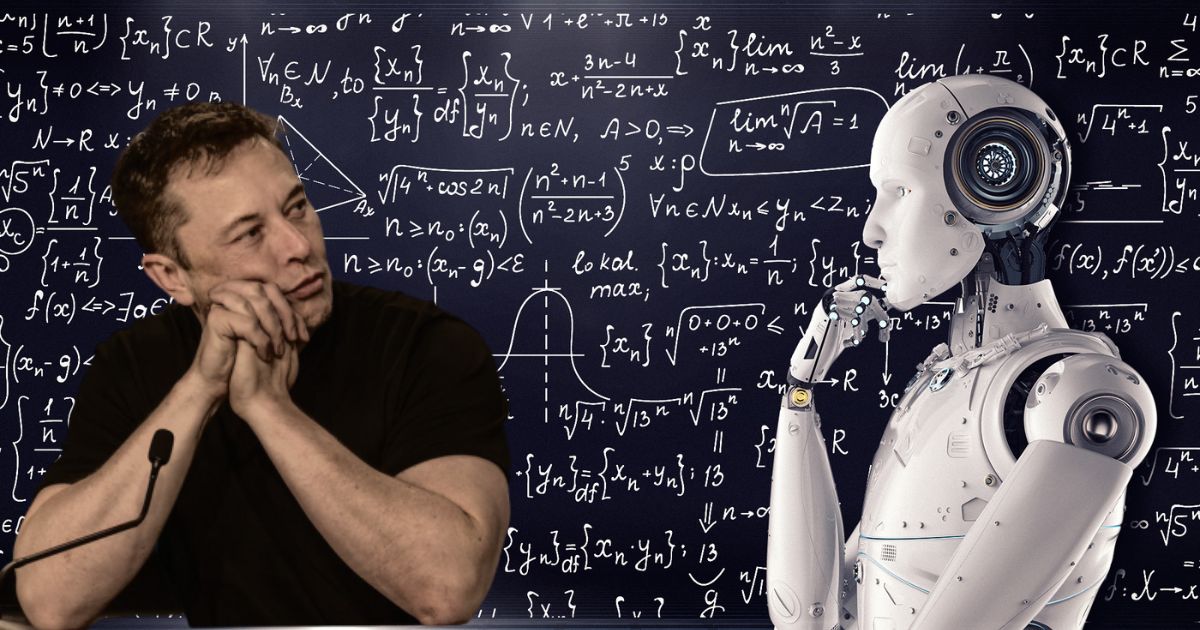Elon Musk’s view on our future with AI has changed in the last few years, and so has ours. With the world exploring the latest technologies every day, we all have noticed the changes in our surroundings. From self-checkout options in grocery stores to coffee kiosks, the world is depending on automation a little more every day. So, what does the future look like? Is this quiet revolution of AI going to take over us? While it might seem trivial now, the tech billionaire Musk thinks it’s just the beginning.
Back in 2017, while talking about universal basic income at the World Government Summit, the Tesla owner stated, “I don’t think we’re going to have a choice.” It is to be noted that his statement was more of a prediction than a political or personal opinion. And Elon Musk seemed to be just right. With the increasing usage of automation for chores usually done by humans, the job market might experience a huge shift very soon.
However, it’s not just dark and gloomy. A few years later, the tech mogul changed his prediction about our future with AI. At the 202 VivaTech Conference, Musk made it clear that his vision has evolved. He thinks that society won’t settle for minimum wage anymore, but instead will incline towards a bigger ambition, which he described as “a high universal income.”
At the Paris conference last year, Elon elaborated, “In a benign scenario probably none of us will have a job. But in that benign scenario, there will be universal high income—not universal base income—and there will be no shortage of goods or services.”
From ‘basic’ to ‘high’, this shift will be a critical point in society, but the SpaceX founder firmly believes that automation will cut down the cost of goods while also increasing productivity. This combination will create abundance, which in Layman’s terms means that people will have access to everything they need to live comfortably. In other words, poverty as we know it now might just completely cease to exist. All of these, however, are just theories in accordance with Musk’s prediction.
“I think that long term, in a benign scenario, any job
that somebody does will be optional. If you want to do a job as a hobby, you can do a job. But otherwise, AI and robots will provide any goods and services that you want.” – @elonmusk at #VivaTech pic.twitter.com/UUykEDEmeO
— Viva Technology (@VivaTech) May 23, 2024
While this sounds like the future would be the perfect time to live, there’s another emerging issue. As tempting as this sounds, Elon Musk fears a problem that is not economical but rather psychological. While abundance sounds wonderful, what about the fulfillment we draw from our work? Imagine a future where advanced AI systems and automation outperform humans, endangering the identity we form through our work. It’s a bit concerning, right? At least to Musk, it is. “The harder challenge is how do people then have meaning. “If you’re not needed, if there’s not a need for your labor, how do you find meaning? Do you feel useless?” The tech tycoon questioned at the VivaTech Conference.
However, at the same time, Elon Musk is mostly optimistic about our future with AI. “I think the benign scenario is probably the most likely—probably 80% likely if you ask my opinion…Everyone will have access to as much in the way of goods and services as they would like.”
His newest vision about AI’s impact on future workplaces seems ideal, given that work will be optional rather than vanishing altogether. “Long term … any job that somebody does will be optional. If you want to do a job as kinda like a hobby, you can do a job, but otherwise, the AI and robots will provide any goods and services you want,” he said.
It’s unclear how much impact AI will have on our day-to-day lives, especially our workplace. According to the latest study by the Brookings Institute report, more than 30% of employees could soon find at least half of their current chores handed over to AI systems. Amid the confusion and questions, one thing is clear.
Elon Musk’s prediction about our future with automation presents us with the biggest dilemma of all. In a world where machines overperform us and with high universal income, everything being accessible, we humans will probably find new ways to define our worth.






